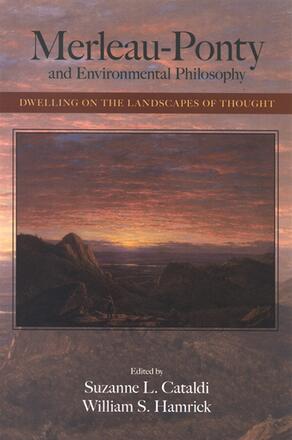
Merleau-Ponty and Environmental Philosophy
Dwelling on the Landscapes of Thought
Alternative formats available from:
Connects the work of Merleau-Ponty to environmental studies.
Description
This richly diverse collection looks at the contemporary relevance of the philosophy of Maurice Merleau-Ponty to environmental issues and builds a coherent philosophical ecology based on his thought. The contributors describe and analyze relations within the natural world by focusing on the centrality of relations in Merleau-Ponty's work; his concept of the bond between humanity and nature; and his novel philosophies of perception, embodiment, and "wild" Being. Eco-phenomenologies of living places such as Central Park in New York City, Midwestern farmlands, and communal household dwellings of Pacific Northwest Coast people are closely examined. The contributors also explore Merleau-Ponty's philosophy for environmental ethics and develop notions such as vital values, somatic empathy, and interspecies sociality.
Suzanne L. Cataldi is Professor of Philosophy at Southern Illinois University at Edwardsville and the author of Emotion, Depth, and Flesh: A Study of Sensitive Space: Reflections on Merleau-Ponty's Philosophy of Embodiment, also published by SUNY Press. William S. Hamrick is Professor Emeritus of Philosophy at Southern Illinois University at Edwardsville and the author of the SUNY Press book Kindness and the Good Society: Connections of the Heart, winner of the 2004 Edward Goodwin Ballard Book Prize in Phenomenology.
Reviews
"For the environmental philosopher with little or no previous knowledge of Merleau-Ponty, the book would provide a challenging introduction to the multiplicity of interpretations of his thought, related, sometimes directly, sometimes tangentially, to the issues of environmental philosophy … these essays all deal with lived experience of nature, or how it is that there is nature for us. " — Environmental Ethics
"I like the way that serious Merleau-Ponty scholarship and a rigorously phenomenological approach are paired with the practical concerns, often illustrated in concrete detail, about the environment. " — Phillip McReynolds, Penn State at University Park